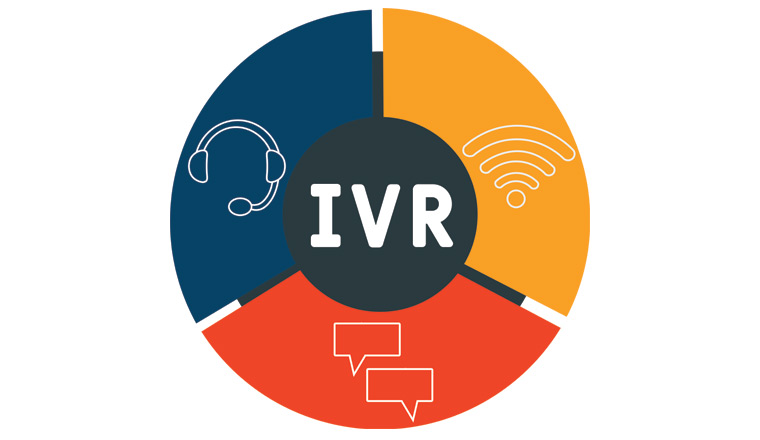Even though you’ve just been using your phone for five minutes, it feels like you’ve been on it for hours. At last, a mechanized voice welcomes you. With the assistance of that robotic voice, you can resolve your issues after selecting from a list of possibilities. This is but a single Interactive Voice Response feature. This technology, also referred to as IVR, enables callers to communicate with the business without connecting to an operator.

We’ll examine Interactive Voice Response (IVR) and its definition in this post. To assist you in determining whether IVR tools are appropriate for your business, we will also go over their advantages.
What is IVR? Examples and benefits of IVR service
Respect having a firm that is expanding; a larger customer base adds significantly to the company’s face value. A rising consumer base is a sign of a thriving business. Adding a personal touch becomes essential as phone traffic increases. You will require a true response to satisfy your expanding customer base.
Maintaining a high call volume is an excellent issue to have. You can do a lot of things with a little delegating. We will talk about the IVR service and the primary idea behind cloud phone solutions that underpin it throughout the post.
What is IVR?
Many commercial phone systems use cloud-based contact centers with interactive voice response (IVR).
IVR is a great tool for enhancing customer support. Route Mobile’s IVR technology simplifies IVR calls, IVR systems, IVR services, and IVR solutions. An IVR system can be used to plan campaigns, administer surveys, schedule reminders for appointments, and produce useful information. It is possible to create voice campaigns that work and boost IVR message user engagement. The idea of the cloud phone guarantees less human intervention and improves the experience.
An IVR application is created using a Graphical person Interface (GUI), which enables even a non-technical person to construct and install sophisticated IVR trees in a matter of minutes.
Examples of IVR
For an IVR solution, we must illustrate the IVR’s precise operation. Perhaps a more pertinent example would be this one: When we dial a company and hear the message, “Press 1 for English, Press 2 for Hindi, Press 0 to speak with our customer representative,” we are communicating with an automated voice response system.
Our call may be connected to a call queue, an extension, or a voice message may be replayed to you, depending on our preferences.
By reducing or eliminating human participation, IVR helps organizations save costs and improve customer satisfaction while managing growing phone traffic. IVR’s cloud phone service eliminates the need for businesses to purchase and maintain separate equipment by allowing customers to make calls from any computer or mobile device with an internet connection.
Benefits of IVR
Businesses stand to gain from implementing an IVR system that puts the customer first. If you’re considering installing an IVR for your company, kindly take into account the following advantages:
- Cost-effective Alternative
In terms of cost-effectiveness, the IVR system performs better than the competitors. IVR is far less expensive than live chat and phone-based customer support. Encouraging workers to concentrate on important tasks increases output and improves customer satisfaction.
- Consumers’ autonomy
If customer service is your top priority, IVR services should be part of your contact center strategy. Customers love IVRs because they can get in touch with the relevant person in less than a minute and have complete control over their experience.
- Improve Customer Satisfaction and Service Efficiency:
Make it easy for clients to contact the right department for information. It improves departmental organization and gives customers a simple route to take to get to their preferred selections.
- Enhance Credibility
To boost customer confidence, we can set up your IVR so that staff members can get in touch with other departments within our business. One common way to provide clients with self-service information is using IVR. We can personalize the experience even if it is provided by a machine.
- The number of calls inbound
The IVR receives all calls at once, rather than having enough call capacity to handle a few calls at a time. Once customers are sent to the appropriate department, staff members can concentrate on resolving calls.
Why is IVR a must-have for businesses?
IVR can assist with call tracking and management while presenting a business-like appearance to clients.
Providing a decent product at a reasonable price is no longer sufficient in today’s competitive business environment. Customer support ought to match the caliber of the products.
IVR allows customers to contact support while still in the store, making it perfect for customers who are constantly on the go. Because prospective clients are more likely to make a purchase when their questions are promptly answered, IVR service is essential for increasing sales.
Conclusion:
Msgclub Interactive Voice Response (IVR) is a feature of cloud-based contact centers that is used by many commercial phone systems. IVR allows businesses to handle growing phone traffic while reducing costs and enhancing customer satisfaction. Less human contact is guaranteed and an improved experience is provided by the cloud telephone concept. The IVR system is more cost-effective than its competitors. IVR is convenient for customers on the go because it lets them phone customer service while they’re still in the store. After that, customers are sent to the relevant department, freeing up staff members to focus on handling phone calls.

2 thoughts on “What is IVR? Examples and benefits of IVR service”
Comments are closed.